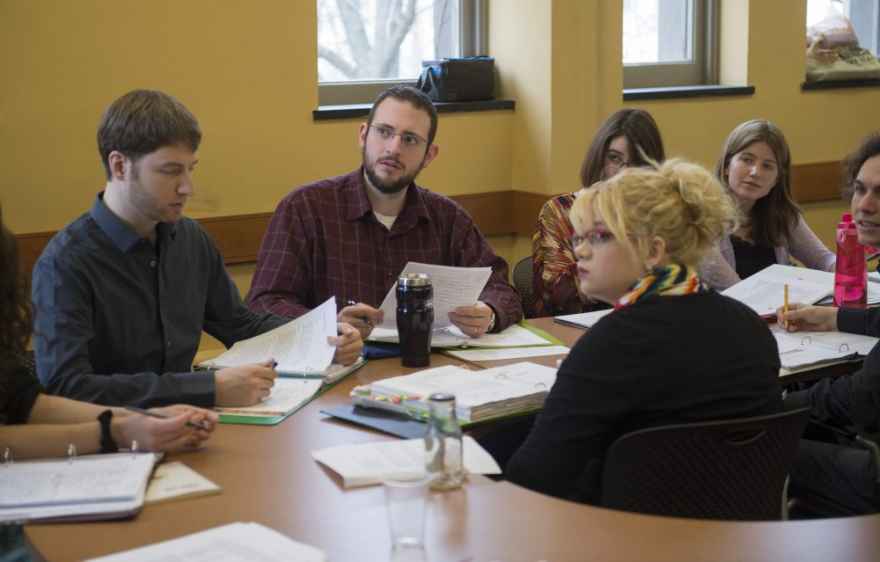New Summer Language Institute Offers Courses on Wide Range of Languages

The following article originally appeared in UChicago News on 8 May
This summer, students at the University of Chicago and from all over the country will have the opportunity to brush up on everything from their ancient Greek to their Georgian as part of the University of Chicago’s new Summer Language Institute.
Beginning and intermediate courses in modern languages will allow students to quickly pick up a new language, while reading and research courses are aimed at graduate students who need to understand scholarly texts in other languages. In addition, the program offers several courses in ancient languages designed to improve reading and translation skills.
The summer is “a great time for students to pick up languages,” said Jamie McCormick, coordinator of the Summer Language Institute. “They can focus in a really intensive way on building skills that will help them prepare for study abroad, or move them closer to their degree, if they’re graduate students.”
The summer months, when students from multiple institutions can come together, are also an ideal time to offer less commonly taught languages that tend to have low enrollment but are essential to scholars. This year, for instance, the Summer Language Institute will offer a course in Georgian, making UChicago the only institution in the nation to offer that language this summer.
The creation of the Summer Language Institute is one of several new initiatives spearheaded by Catherine Baumann, director of the newly renamed University of Chicago Language Center (formerly the Center for the Study of Languages). Baumann was named director of the Chicago Language Center in Autumn 2013.
Baumann and McCormick plan to expand the Summer Language Institute in years to come. The types of courses offered this summer will be expanded into other languages. Additionally, they plan to create courses for heritage speakers of Polish, Korean and the South Asian languages, and new intensive courses for learners of a variety of languages who want to boost their previous knowledge into the high advanced levels.
Jason Merchant, the deputy dean for languages in the Division of the Humanities said the changes to the Chicago Language Center reflect the central role of language learning at the University.
“Knowledge of a language other than English is a prerequisite not just for informed global citizenship, but for the very life of the mind: it is a central part of what it means to be educated. Understanding texts, peoples and cultures through their languages is the most effective antidote to monochromatic thinking and the surest path to a deep knowledge of them,” he said.
In her new role as director, Baumann said her primary aim was to “support the teaching of languages across campus, and to support the teachers and students.”
Those teachers and students are working in an exceptionally broad range of languages, both ancient and modern. Between 2009 and 2013, the University offered 59 languages, including Akkadian, Kazakh, K’iche’ Maya, and Old Church Slavonic, alongside more commonly taught languages like Arabic, Spanish, and Chinese.
First-year Elizabeth Wood has already sampled several of UChicago’s language offerings: Arabic, conversational Syrian Arabic, and Swahili. "What I really like is the focus on speaking and using the language constantly in the classroom. It helps you learn naturally, without having to think about it,” Wood said of her experience.
Graduate student Zack King, who has taught Russian courses, said he worked to engage students by encouraging them to talk about topics that interest them, like music or politics. “I feel like we have a really good rapport,” he said.
King also said the Chicago Language Center was a valuable resource for language teachers at the University. “It’s a really wonderful atmosphere there. The staff are really helpful and show me everything I need.”
McCormick, who has taught German language courses, said support from the Chicago Language Center is essential to graduate students like King. “It’s crucial that we find a way to build up our reputation as a place where language pedagogy—and pedagogy generally—is taken very seriously, and students get extensive training in it,” he explained.